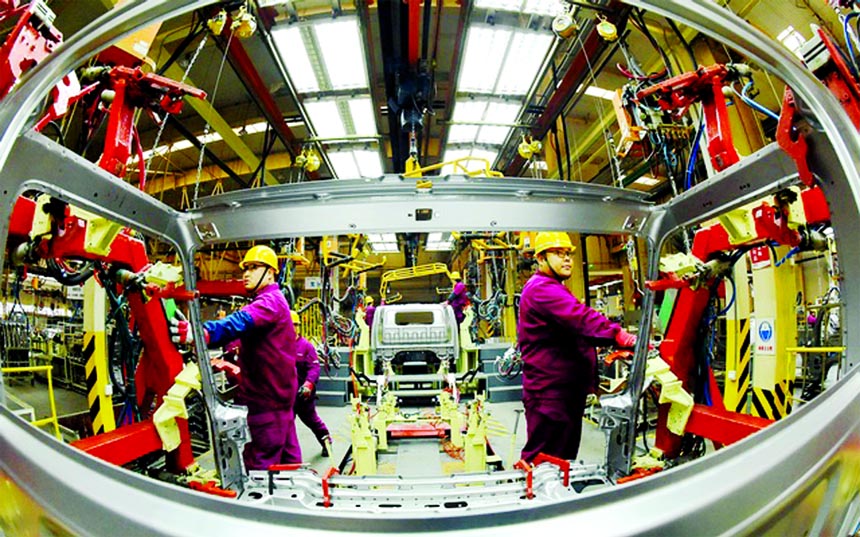
Reuters :
Factory activity weakened across much of Europe and Asia in December as the US-China trade war and a slowdown in demand hit production in many economies, offering little reason for optimism as the new year begins.
A series of purchasing managers’ indexes for December released on Wednesday mostly showed declines or slowdowns in manufacturing activity across the globe.
In China, the Caixin/IHS Markit PMI slipped into contraction territory for the first time in 19 months, broadly tracking an official survey released on Monday.
“We are really seeing a global slowdown into this year, and in Asia, particularly, export-oriented countries are hurting,” said Irene Cheung, Asia strategist at ANZ.
“Our expectation for central banks is that most of them won’t change policy in 2019 and these numbers coming out on the weak side won’t change that outlook.”
Euro zone manufacturing activity barely expanded at the end of 2018, providing disappointing reading for European Central Bank policymakers, just after they ended their 2.6 trillion-euro asset-purchase scheme.
Earlier PMI surveys showed Italy remained in contraction territory and was joined by France, where data showed a first deterioration in operating conditions for 27 months.
Manufacturing growth in both Germany and Spain was modest, easing to the weakest in around two-and-a-half years.
British factories, however, ramped up stockpiling as they prepared for possible border delays when Britain leaves the European Union in less than three months’ time.
The UK manufacturing PMI rose to a six-month high, stronger than all forecasts in a Reuters poll of economists. Survey compiler IHS Markit cautioned the improvement did not herald a big change in the outlook for Britain’s stuttering economy-it was caused in large part by manufacturers stockpiling inputs and finished goods.
“Despite the headline index rising to a six-month high in December, the manufacturing PMI still suggests that the sector stagnated in Q4,” said Andrew Wishart at Capital Economics.
Factory activity weakened across much of Europe and Asia in December as the US-China trade war and a slowdown in demand hit production in many economies, offering little reason for optimism as the new year begins.
A series of purchasing managers’ indexes for December released on Wednesday mostly showed declines or slowdowns in manufacturing activity across the globe.
In China, the Caixin/IHS Markit PMI slipped into contraction territory for the first time in 19 months, broadly tracking an official survey released on Monday.
“We are really seeing a global slowdown into this year, and in Asia, particularly, export-oriented countries are hurting,” said Irene Cheung, Asia strategist at ANZ.
“Our expectation for central banks is that most of them won’t change policy in 2019 and these numbers coming out on the weak side won’t change that outlook.”
Euro zone manufacturing activity barely expanded at the end of 2018, providing disappointing reading for European Central Bank policymakers, just after they ended their 2.6 trillion-euro asset-purchase scheme.
Earlier PMI surveys showed Italy remained in contraction territory and was joined by France, where data showed a first deterioration in operating conditions for 27 months.
Manufacturing growth in both Germany and Spain was modest, easing to the weakest in around two-and-a-half years.
British factories, however, ramped up stockpiling as they prepared for possible border delays when Britain leaves the European Union in less than three months’ time.
The UK manufacturing PMI rose to a six-month high, stronger than all forecasts in a Reuters poll of economists. Survey compiler IHS Markit cautioned the improvement did not herald a big change in the outlook for Britain’s stuttering economy-it was caused in large part by manufacturers stockpiling inputs and finished goods.
“Despite the headline index rising to a six-month high in December, the manufacturing PMI still suggests that the sector stagnated in Q4,” said Andrew Wishart at Capital Economics.

